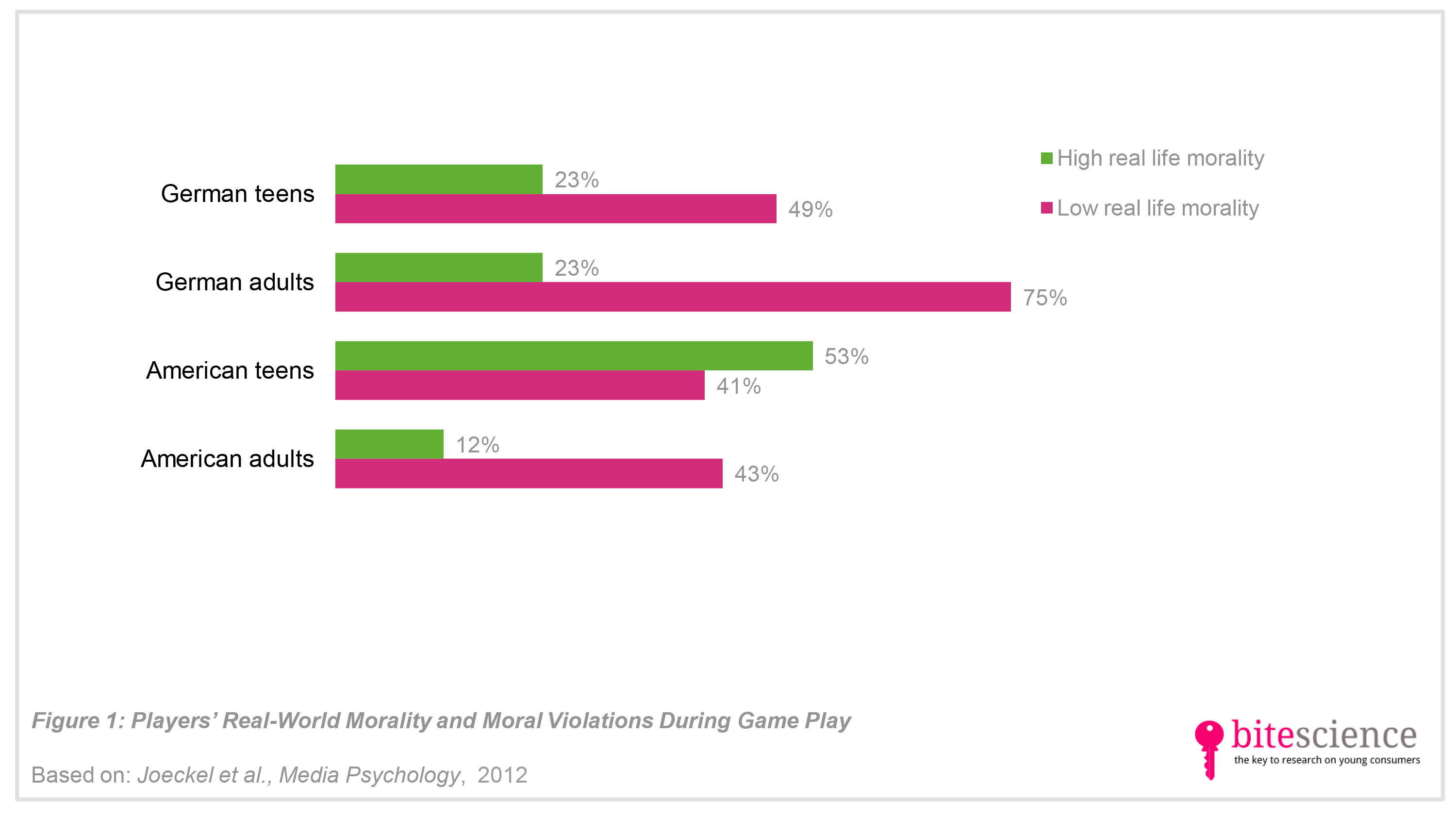
27 January 2014
Gaming Morals vs. Real-World Morals
Keywords: games, moral, teens, North America, Western Europe, decision making, gaming, survey,
A study in Media Psychology investigates whether morality in real life is linked to moral decisions in video games. The study shows that real-world morality is indeed associated with players’ decisions in video games. Players with a high morality in real life make fewer moral violations during game play.
Take aways
- In line with earlier research, this study shows that real-world morality influences players’ moral decision in video games:
- High morality in real life is associated with fewer moral violations during game play.
- Low morality is associated with making random moral decisions in video games.
- This is the case across countries (German and Americans) and age (teens and adults), except for American teens.
- American teens do not link their own morality to moral decisions in video games.
- Social marketers and educators should know that moral video games could be a promising tool for educating people about making the right choices.
Study information
The question?
Does morality in real life predict moral decision in video games?Who?
301 American and German teens and adults (46% male). Teens were between the ages of 12 and 15 years and adults between 49 and 86 yearsWhere?
United States and GermanyHow?
Participants played a video game in which they interacted with virtual non-player characters. At the beginning of the game the participants were allowed to choose a male or female avatar. There were a total of six scenarios during game play in which the player had to a make moral decision (violate or maintain morality). After game play, the participants completed a questionnaire about their game experience and morality in real life (the Moral Foundations Questionnaire).
Facts and findings
- Players with a high morality in real life made fewer decisions to commit moral violations during game play than those with a low morality.
- In contrast, players with a low morality in real life made their moral decision at random.
- These findings were consistent across countries and age, except for American teens.
- American teens’ moral decisions during game play were not linked to their morality in real life.
- An explanation for this finding is that American teens felt more present in the game environment and therefore did not make moral decisions in the game based on their own morality.
